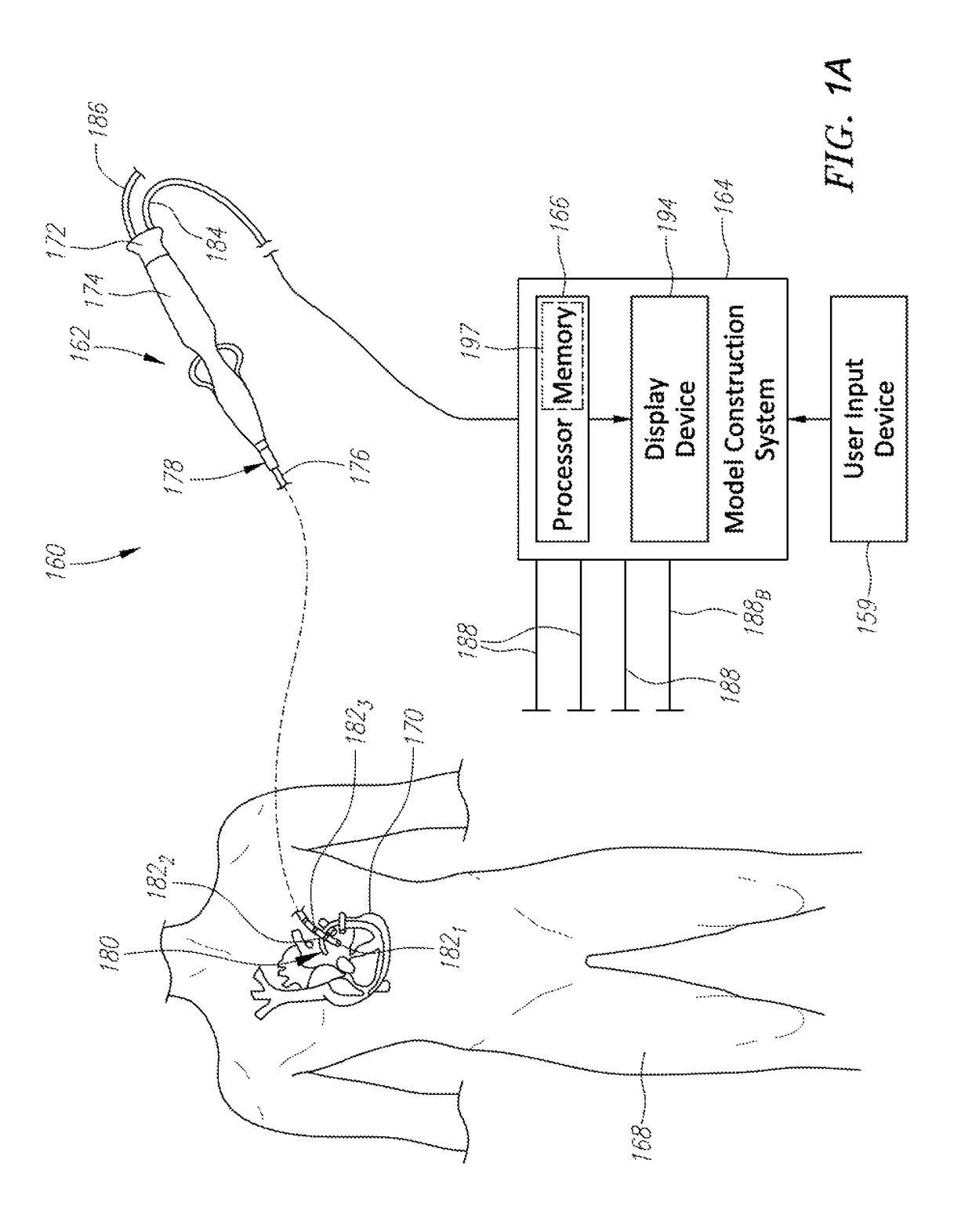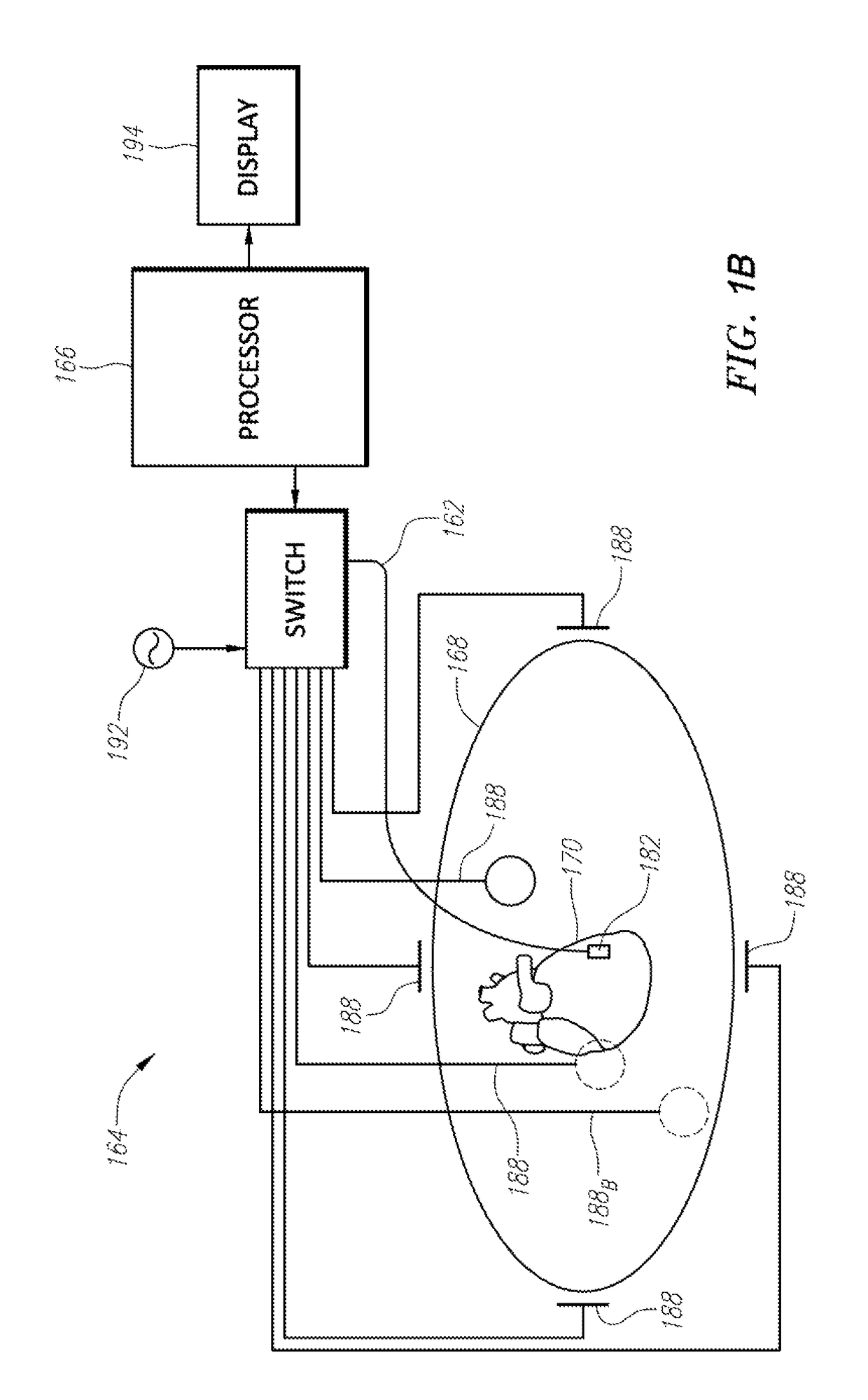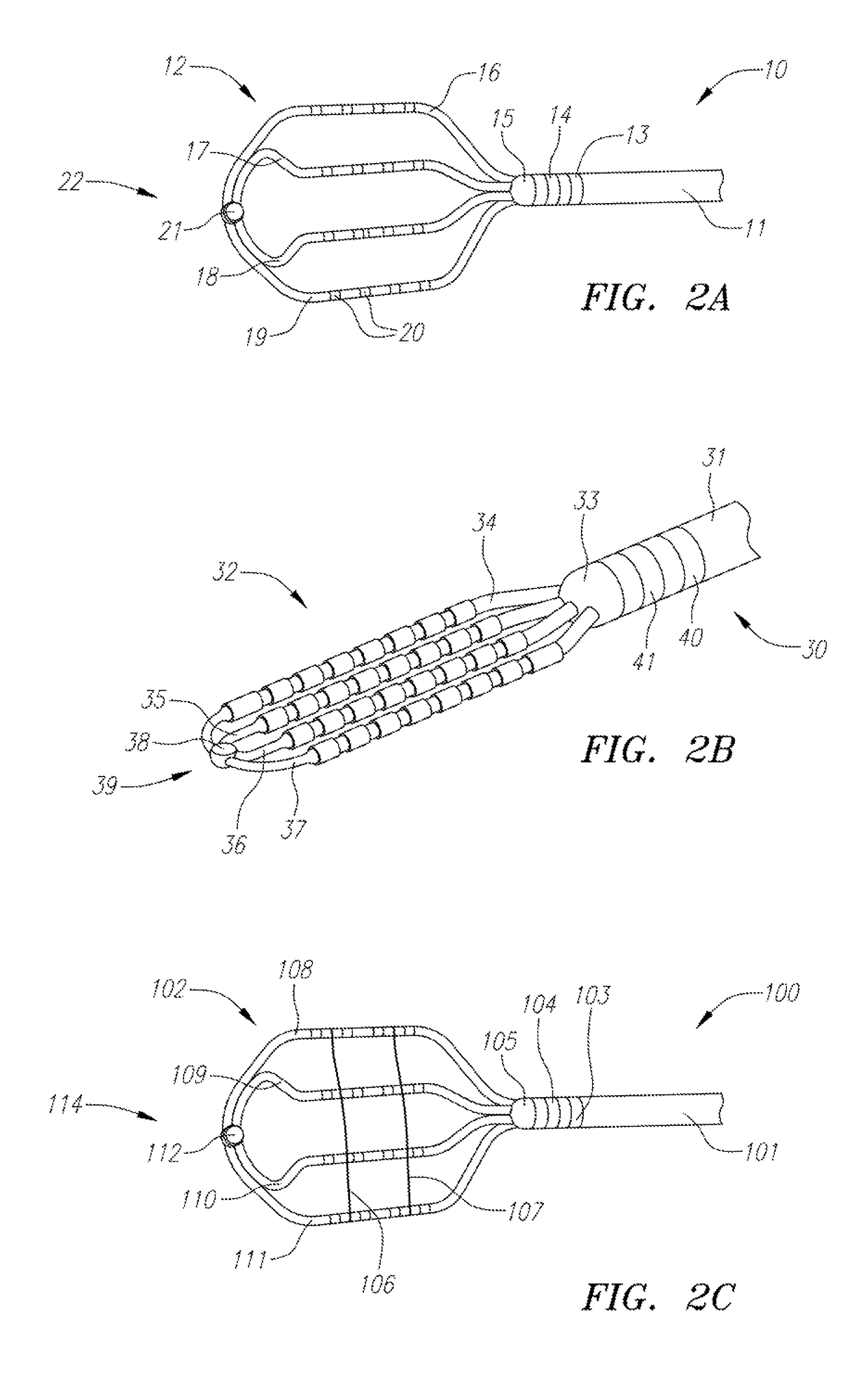Systems and methods for orientation independent sensing
a technology of orientation and sensing, applied in the field of orientation independent sensing systems and methods, can solve problems such as limitations, corrals, and difficulty in reliably allowing discrimination or localization of defects
- Summary
- Abstract
- Description
- Claims
- Application Information
AI Technical Summary
Problems solved by technology
Method used
Image
Examples
Embodiment Construction
[0037]Cardiac EP mapping today primarily uses bipolar electrograms (EGMs) obtained from electrode pairs. Bipoles are preferred as they have reduced low frequency noise, reduced far-field effects and often produce sharp and well-recognized features when filtered appropriately. Unipolar EGMs on the other hand contain far-field information and less stable baselines that make them less attractive for mapping purposes. A feature of the unipolar signal that makes it useful for mapping is the fact that its morphology and amplitude are independent of catheter orientation. Amplitudes and morphology of bipolar EGM's are dependent on the orientation of the electrode pair from which they are calculated and hence depend on the orientation of the catheter. The dependence on orientation results in inconsistently measured amplitudes and morphology-based measurements like activation times. It therefore also impacts derived quantities like scar boundaries, activation direction, and conduction velocit...
PUM
 Login to View More
Login to View More Abstract
Description
Claims
Application Information
 Login to View More
Login to View More - R&D
- Intellectual Property
- Life Sciences
- Materials
- Tech Scout
- Unparalleled Data Quality
- Higher Quality Content
- 60% Fewer Hallucinations
Browse by: Latest US Patents, China's latest patents, Technical Efficacy Thesaurus, Application Domain, Technology Topic, Popular Technical Reports.
© 2025 PatSnap. All rights reserved.Legal|Privacy policy|Modern Slavery Act Transparency Statement|Sitemap|About US| Contact US: help@patsnap.com



